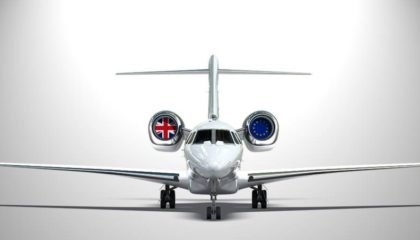
Urgent call to action on administrative barriers following brexit
EBAA urges National authorities to eliminate administrative barriers in the issuance of permits and authorisations for non-scheduled flights following the conclusion of the EU-UK Trade and Cooperation Agreement
10/03/2021
On 24 December 2020, after intensive negotiations, the European Commission and the UK government reached an agreement on the terms of post Brexit cooperation.
The agreement provides for continued and sustainable air connectivity, though market access falls short of what the EU Single Market offers. It includes provisions so that competition between EU and UK operators takes place on a level playing field, ensuring high levels of safety, workers’ rights, and environmental protection.
Since 1 January 2021, UK business aviation operators have been confronted with administrative barriers of all sorts as a result of their new Third Country Operator (TCO) status. This undermines their ability to perform last-minute flights from the UK to the EU (3rd & 4th freedoms). The UK implemented a series of measures, such as the Block Permit Scheme for ad hoc charter operations, to ensure business continuity for EU Business aviation operators wishing to fly to the UK.
We would like to bring to the attention of national authorities that the facilities granted by UK authorities are limited in time and conditional on obtaining reciprocal conditions for UK operators. A lack of cooperation in this regard would result in a detrimental situation for our entire ecosystem and is not desirable given the unprecedented challenges our industry faces in the context of the COVID19 crisis.
Business aviation provides flexibility and non-scheduled flights are often organised at very short notice. Administrative barriers prevent operators from obtaining the required permits and authorisations in time with the risk that flights can’t be operated, constituting a financial loss for the operator and a difference of treatment within the industry that the agreement seeks to avoid.
To ensure a level playing field between all business aviation operators that is consistent with the philosophy of the agreement, we call on national authorities to urgently put in place schemes and practical solutions ensuring the elimination of the current administrative barriers for all Third Country Operators. In this way, Business aviation operators, on both sides of the Channel, can benefit from the same rules.
We urge national authorities to cooperate for the benefit of all.




